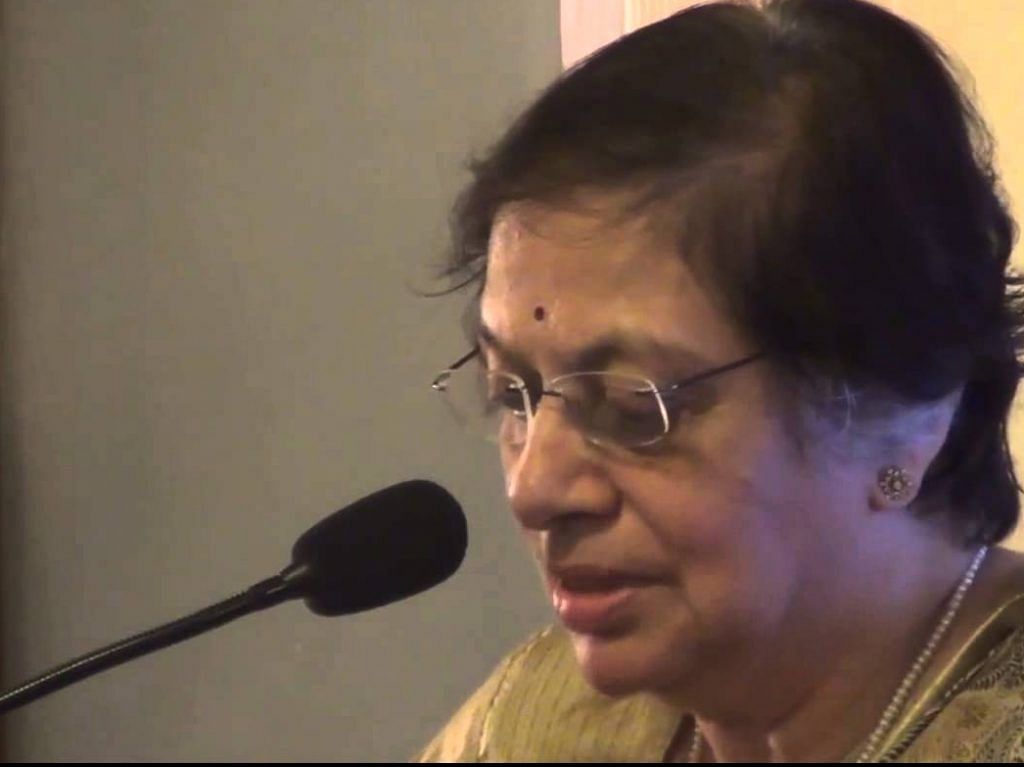Former SC judge Sujata Manohar says the law needs to classify different kinds of sexual misconduct and specify types of punishment for them even years later.
New Delhi: The #MeToo movement in India that has taken social media by storm demands an urgent rethink in the way law and society define sexual harassment at the workplace, said Justice (retd) Sujata Manohar — who was part of the three-judge Supreme Court bench that paved the way for the Vishaka Guidelines in 1997.
“The #MeToo movement, which in my view is fully justified, is throwing up questions which the law does not necessarily address at the moment,” Manohar, who became the second woman judge of the top court in 1994, told ThePrint.
However, the movement that has remained largely on social media so far, with several women calling out men for their alleged sexual misconduct, needs to be backed by a criminal provision, she said.
“What is happening right now is that a lot of women who have not, for some reason or the other, been able to speak up are saying that this man who is in this powerful position is guilty of conduct that is unbecoming of his position,” she said.
Also read: Modi govt left with little wiggle room as #MeToo allegations stack up against MJ Akbar
“So one way is to decide that they won’t stay in these positions. But if you want punishment for them other than them stepping down, the law doesn’t address it because there is a time limit on when you can report,” said Manohar.
Therefore, the law needs to address this phenomenon and classify different kinds of sexual misconduct and specify different categories of punishment for them even years later, she explained.
“I feel sociologists, criminologists need to sit together and figure out how to address different kinds of punishment,” said Manohar, who was a Supreme Court judge between November 1994 and August 1999.
In 1997, Manohar and Justice B.N. Kirpal were on the bench led by then Chief Justice J.S. Verma which ruled in the Vishakha vs State of Rajasthan case. The case led to the framing of the Vishakha Guidelines to tackle sexual harassment at the work place, defining sexual harassment in legal terms for the first time.
The guidelines went on to become a law in 2013 and is called the Sexual Harassment of Women at Workplace (Prevention, Prohibition and Redressal) Act.
Manohar, who is also a former chief justice of the Bombay High Court, now lives in Mumbai.
Also read: #MeToo movement should not spare Indian NGO heroes and I am speaking out
Perils of #MeToo
While she threw her weight behind women who are calling out their alleged harassers, Manohar said, one cannot assume that women cannot lie.
“It is tempting to assume that women would never lie, but we need to honestly ask ourselves, isn’t there a huge possibility of them lying or being over-sensitive to a comment,” she said.
Although in the traditional legal system if there are no witnesses in a rape case, for example, a woman’s word is taken as evidence, Manohar cautioned against the misuse of such a provision.
“Our law, by and large, does rest on the principle of innocent until proven guilty, so one shouldn’t readily depart from the usual norm,” she said.
“There is a danger of unscrupulous women lying to malign or pressure a man…So while I am supportive of #MeToo, I don’t think it is the final answer,” said Manohar.
Also read: #MeToo in India should not forgive women who enable patriarchy and rape culture
Why the law has not worked
Asked if she thinks that women are opting to come out on social media to relate traumatic experiences of harassment because the legal system failed them, Manohar said, she did not entirely agree with that sentiment.
“What did the Vishakha Guidelines say? We need to have an in-house committee with women members on it, who are sensitive to the cause,” she said.
“But in 90 per cent of the cases, you see the committees are either still not there, or don’t have women on them…If you don’t have a sensitive committee, they will obviously acquit the man,” Manohar added.
